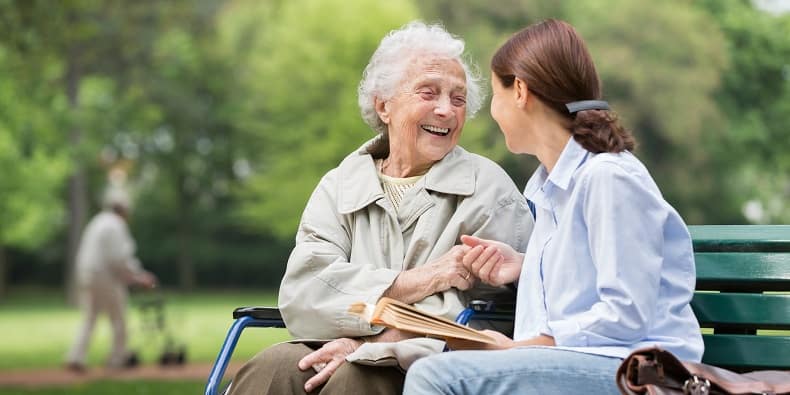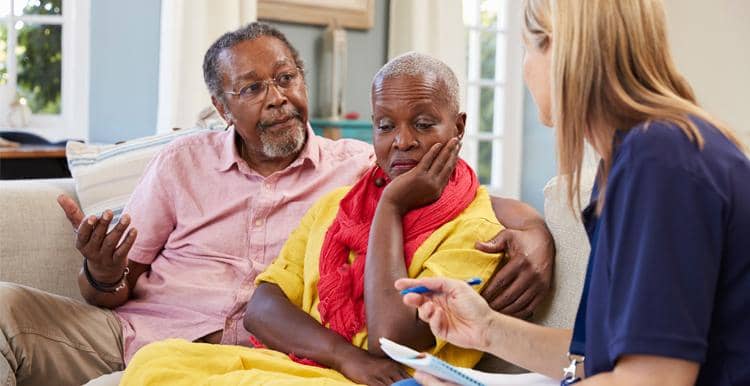What are the signs of emotional abuse in adults?
Emotional abuse is a form of abuse that can be just as damaging as physical abuse, but it can be more difficult to detect. Emotional abuse can cause long-lasting damage to a person’s mental health and wellbeing. It involves the use of words, gestures, or actions to cause emotional pain or distress to a person. Emotional abuse can happen to anyone, but older and disabled people and women are particularly vulnerable. In this guide, we will look at the signs of emotional abuse in adults and provide guidance for families on how to recognise it and what to do if they suspect emotional abuse.
Signs of emotional abuse
- Withdrawal – If the person is withdrawing from social interactions, avoiding family and friends, or is becoming less interested in activities they used to enjoy, it could be a sign of emotional abuse.
- Anxiety or fear – If the person is displaying signs of anxiety, fear or is excessively worried about things, it could be a sign of emotional abuse. They may feel scared or threatened by the person who is emotionally abusing them.
- Low self-esteem – Emotional abuse can cause people to feel that they are worthless, useless or unlovable. They may feel like they cannot do anything right or that they are a burden on others.
- Depression – Depression is a common result of emotional abuse. If the person is displaying symptoms of depression, such as loss of interest in activities or a lack of energy, it could be a sign of emotional abuse.
- Agitation or anger – Emotional abuse can cause people to feel angry, irritable, or agitated. They may feel like they are being constantly criticised or belittled, which can cause them to lash out or become defensive.
- Isolation – Emotional abuse can cause people to become isolated from family and friends. The person who is emotionally abusing them may be trying to keep them isolated to maintain control.
- Confusion – Emotional abuse can cause people to become confused or forgetful. They may be unable to concentrate, or they may forget important details about their lives or the people around them.
What to do if you suspect emotional abuse
If you suspect that a person is experiencing emotional abuse, it is important to take action immediately. Here are some steps you can take:
- Talk to the older person – Ask them if they are experiencing any emotional abuse or if anyone is hurting them emotionally. Be supportive and non-judgmental.
- Contact adult protective services – Contact the local authority and report your concerns if the person has care and support needs. They will investigate and take appropriate action if necessary.
- Seek medical attention – If the person is displaying physical symptoms of emotional abuse, such as weight loss, poor hygiene or unexplained injuries, seek medical attention immediately.
- Seek legal advice – If legal action is necessary, seek legal advice to understand the options available.
Preventing emotional abuse
Prevention is key when it comes to emotional abuse. Here are some steps you can take to prevent emotional abuse from occurring:
- Stay involved – Stay involved in the person’s life and maintain regular contact with them.
- Educate – Educate the person about emotional abuse and how to protect themselves.
- Be cautious – Be cautious about who has access to the person and who they are interacting with.
- Encourage independence – Encourage the person to maintain their independence as much as possible. This can help to prevent them from becoming isolated and vulnerable to emotional abuse.
- Report – Report any suspected abuse to the appropriate authorities.
Conclusion
Emotional abuse can be just as damaging as physical abuse, but it can be more difficult to detect. It is important to be aware of the signs of emotional abuse and to take action if you suspect that someone is at risk.





0 Comments